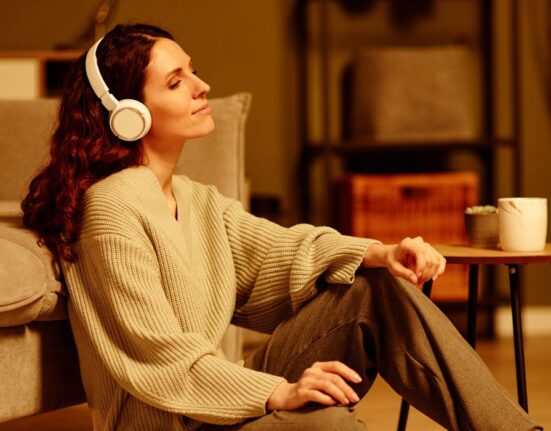Our brain is perhaps, the best superhero we could ask for. Everything that we do either consciously during the day or unconsciously when we sleep at night, our brain is responsible for it. So if our brain is responsible for everything we do, why does human performance across various domains typically decline as we age? Does our brain age? The answer to that is yes (unfortunately). However, Evolutionary scientists are still pondering over the question “Why does the human brain age?”. In this article, I will cover the Neuropsychological perspective of brain ageing and how it changes across our lifespan.
As we age every-day, our brain is also getting older with each passing day. The effects of this process are seen at multiple levels such as molecular, cognition, cellular and brain size. Brain volume typically reduces as we age, particularly in our frontal lobe. Some lesions also develop in our white matter. Various factors play a role in brain ageing such as genetics, hormones and experiences. Brain ageing looks different for every individual and why does it vary for every individual is still an unsolved mystery!
Physical changes
Many published studies in the scientific literature have found that brain volume reduces by 5% per decade once you reach 40 years of age. This percentage usually increases when individuals reach their 70s. Neuronal necrosis (death of neurons) has been found to shrink our grey matter. A reduction of dendritic synapses have also been documented with age8. Most studies have found that with ageing, prefrontal cortex incurs the most damage and occipital lobe the least.
This seems to align with the cognitive alterations we observe as we age and out of all the brain regions, the biggest impact of ageing is seen in the hippocampus Some gender differences have also been observed as frontal and temporal lobes seem to age faster in men and on the contrary, parietal lobe and hippocampus ages faster in women. Most scholars have reported that although brain volume steadily continues to decline, this decline becomes more profound when the person is in their 70s.
Cognitive changes
Memory is the one cognitive change which is very widely observed through ageing. To break down the broad term ‘memory’, we can categorize it into episodic, semantic, procedural and working memory. With respect to ageing, episodic and semantic are the most affected ones. Episodic memory pertains to the ‘when, where and how’ of events from the past experienced by the individual. For example: graduating from college, receiving your first salary, going for your first solo trip, having an ugly fight with your boyfriend/girlfriend and so on. From the 50s, episodic memory begins to decline steadily.
Recall is much more affected in normal ageing than recognition and this symptom is most commonly seen in Alzheimer’s Disease. Semantic memory is the ‘memory of facts and figures’. For example: knowing New Delhi is India’s capital, there are 7 wonders of the world, the Pacific Ocean is the world’s largest ocean, Newton discovered gravity and so on. Through rigorous research, scientists have found that semantic memory keeps improving and only begins to decline when individuals cross their 70s. Although memory is the most researched cognitive function when it comes to brain ageing, other functions which also decline are attention, perception, decision-making, language, reflexes and creative thinking5.
Mechanisms of Change
When we speak about different neurotransmitters, dopamine and serotonin have gained immense popularity. A 10% decline per decade has been observed in dopamine levels from early adulthood, which affect cognitive and motor performances. It has been hypothesised that dopaminergic pathways which exist between the frontal lobe and striatum start to decline as we age along with lowered levels of dopamine and poor binding of dopamine to the receptors. As we age, levels of serotonin also drop drastically along with calcium dysregulation and mitochondrial dysfunction.

Vascular Factors & Dementia
A host of different studies have found that cases of white-matter lesions, strokes, and dementia rise as we age. Scientists have found strong evidence to support the claim that white-matter lesions occur. When there is reduced blood flow to the cerebral cortex which in turn, affects cerebral reactivity. This further leads to deterioration at the tissue level in the grey matter which was found through magnetic resonance imaging. White-matter lesions are correlated with very poor cognition, which has been produced empirically in various studies.
Some other factors, such as extreme variation in blood pressure is also associated with brain atrophy. In a few Japanese studies, greater grey matter volume loss was found when systolic blood pressure was increased in subjects.
Protective factors
If we are prone to brain ageing and cognitive decline. Is there nothing we can do to protect ourselves against this? You may ask this question and the answer is YES, we absolutely can. Although brain ageing is inevitable, we can certainly delay the onset of many disorders and symptoms of cognitive decline. Higher fish and seafood consumption, even a couple of times a month, has found to reduce stroke. Regular antioxidant consumption protects us against cognitive decline. Apart from a healthy diet, scientists suggest that to curb cardiovascular risk and to enhance the working of the hippocampus. A low/moderate alcohol consumption is recommended.
In the case of moderate alcohol consumers, studies have shown lesser white-matter lesions, infarcts and later onset of dementia. Exercise also works wonders by improving our executive functioning, reducing brain ageing and improving the white and grey matter tissue density. Some other factors to consider apart from diet include the person’s intelligence and environmental factors like schooling, occupation, cognitive reserve etc. Which also play their part in brain ageing.
The Complexities of Brain Aging
Our brain is working for us 24*7 and is naturally prone to wear and tear. The mechanism in which the brain ages is very complex to decipher and scientists are still trying to find answers to this. From this brief article (yes, it was brief!), it becomes evident that almost all parts of the brain incur some damage as we age. The four lobes, cerebral cortex, various subcortical structures, different neurotransmitters, communication between neurons all deteriorate as we become older.
This affects every aspect of our lives such as cognitive reserve, emotional response, behaviour, motor activity, movement and coordination, creativity and visuo-spatial skills, memory and many more. Not only does it hamper our well-being, brain ageing also makes us prone to other diseases. As found through different neuro-imaging studies, the process of brain ageing is very complex and it happens differently for different individuals. Which is why some succumb to symptoms earlier than the rest. Since this process is inevitable, all we can do is delay the onset of various problems. The better care you take for your brain, the better ‘brain-healthy’ life would you be awarded with.













Leave feedback about this